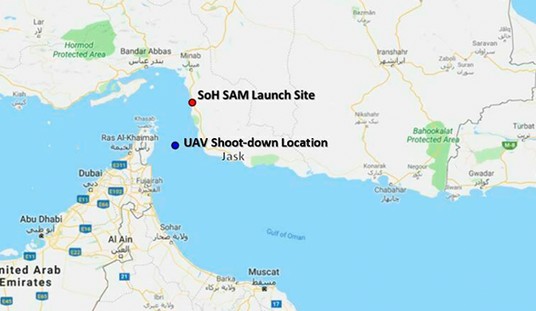So it begins.
Sectarian violence in Iraq sent the price of oil skyrocketing on Thursday, propelling both Brent and West Texas Intermediate up more than two percent amid growing concerns about a threat to global supply.
After a delayed reaction to turmoil raging in the country, oil prices soared as open warfare between rebel forces—threatening a reconquest of the country barely a few years after U.S. forces departed—and the government spilled on to the world stage. Iraq is a member of OPEC, second only to Saudi Arabia as one of the world’s largest producers of crude.
With violence threatening Iraq’s civilian population and overwhelming the country’s security forces, a shadowy group known as the Islamic State in Iraq and Sham (ISIS) has managed to seize control of key cities including Mosul, the country’s second-largest, Ramadi, Falluja and Tikrit. Fears about global supply mounted, as reports surfaced that Russian tanks had moved into beleaguered Ukraine, sending crude on a tear and overwhelming the impact of lackluster U.S. economic data.
Iraq’s oil production is still going about its usual business as of right now, and doesn’t look like there’s any imminently huge threat of disruption. As one group of Macquarie analysts put it, however, “Although attention on Iraq has faded over the past two years, we have continued to believe that the political stability there was at best fragile. If the current situation overflows into oil-supply disruption, the total volume at risk could be material.” And as of yesterday, this was happening:
Sunni Islamist militants from the Islamic State in Iraq and the Levant (ISIS) have rapidly expanded their control of Iraq as a whole. The group is now said to be within range of overtaking Iraq’s biggest oil refinery in the city of Baiji.
The Baiji refinery can produce over 300,000 barrels of oil per day and supplies oil to the majority of Iraq. The refinery is also tasked with supplying power to Baghdad, Iraq’s capital city. Iraq is OPEC’s second biggest oil producer. …
Security sources told Reuters that the ISIS jihadists drove into Baiji, the home of the refinery, with a caravan of armed vehicles. The militants then proceeded to burn down the court house and police station, and freed masses of prisoners from jails.
It’s impossible to predict how any of this is going to play out, of course, but markets are feeling pretty edgy right about now — and as Keith Johnson at Foreign Policy posits, Americans might have largely forgotten about the Iraq war, but it’s very possible they’re about to be reminded at the gas pump:
Depending on Iraq’s ability to rally its own security forces and successfully fight the group, the uprising could also upend Baghdad’s plans to increase oil production in other parts of the country and assert control over exports in the semi-autonomous northern region of Kurdistan. All that becomes hugely important when global oil markets are looking at growth in Iraqi production as the great hope to keep the world fully supplied.
“Iraq needs to deliver; it’s as simple as that. This is not good, irrespective of whether there’s a short-term impact or not,” said Amrita Sen, an oil markets analyst at Energy Aspects Ltd, an energy consultancy in London.
“You need a lot of incremental supply increase from Iraq, which the current dynamics are saying is not going to happen,” Sen said.
However, Baghdad’s efforts to fight the militants could have knock-on effects on the huge oil fields in southern Iraq that account for the bulk of Iraqi output. Every time the Iraqi government moves troops from the south to fight militants in other parts of the country, oil companies’ operations are disrupted because of security concerns. In fact, Sen said, the increased cost of security is undermining the appeal of Iraq’s massive and easy-to-extract oil reserves.
One bright spot in all of this is that the United States’ oil and gas production has lately exploded — no thanks to the Obama administration, I might add — which has helped to absorb some of the recent downswings in production from places like the also politically unstable Libya, Sudan, and Nigeria. Major disruptions or even just a lack of production growth from Iraq combined with the ongoing sanctions on Iran, however, could be a bridge too far to keep global gas prices below some very economically painful levels.








Join the conversation as a VIP Member